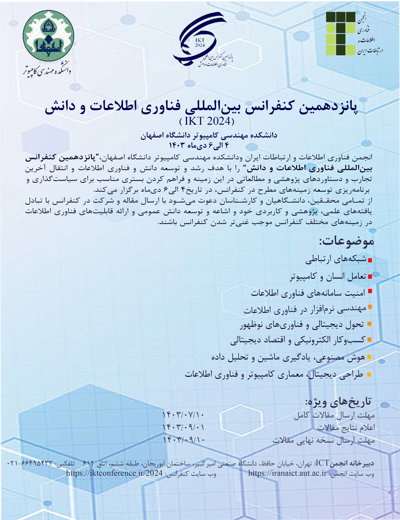0% Complete
Authors :
Keywords :
Abstract :
List of archived papers
شکوفه علی محمدی - احمدعلی آبین
Dr Armin Salimi-badr - Mohammad Hashemi
Elaheh Jafari - Dr Bita Shams - Dr Saman Haratizadeh
فاطمه مکی زاده - سارا صراف - مصطفی شیرالی
حنانه رجبیون - محمد قاسم زاده - وحید رنجبر بافقی
Moein-Aldin AliHosseini - MohammadReza Sharbaf
Rojan Roshankar - Mohammad Reza Keyvanpour
Sobhan Siamak - Eghbal Mansoori






